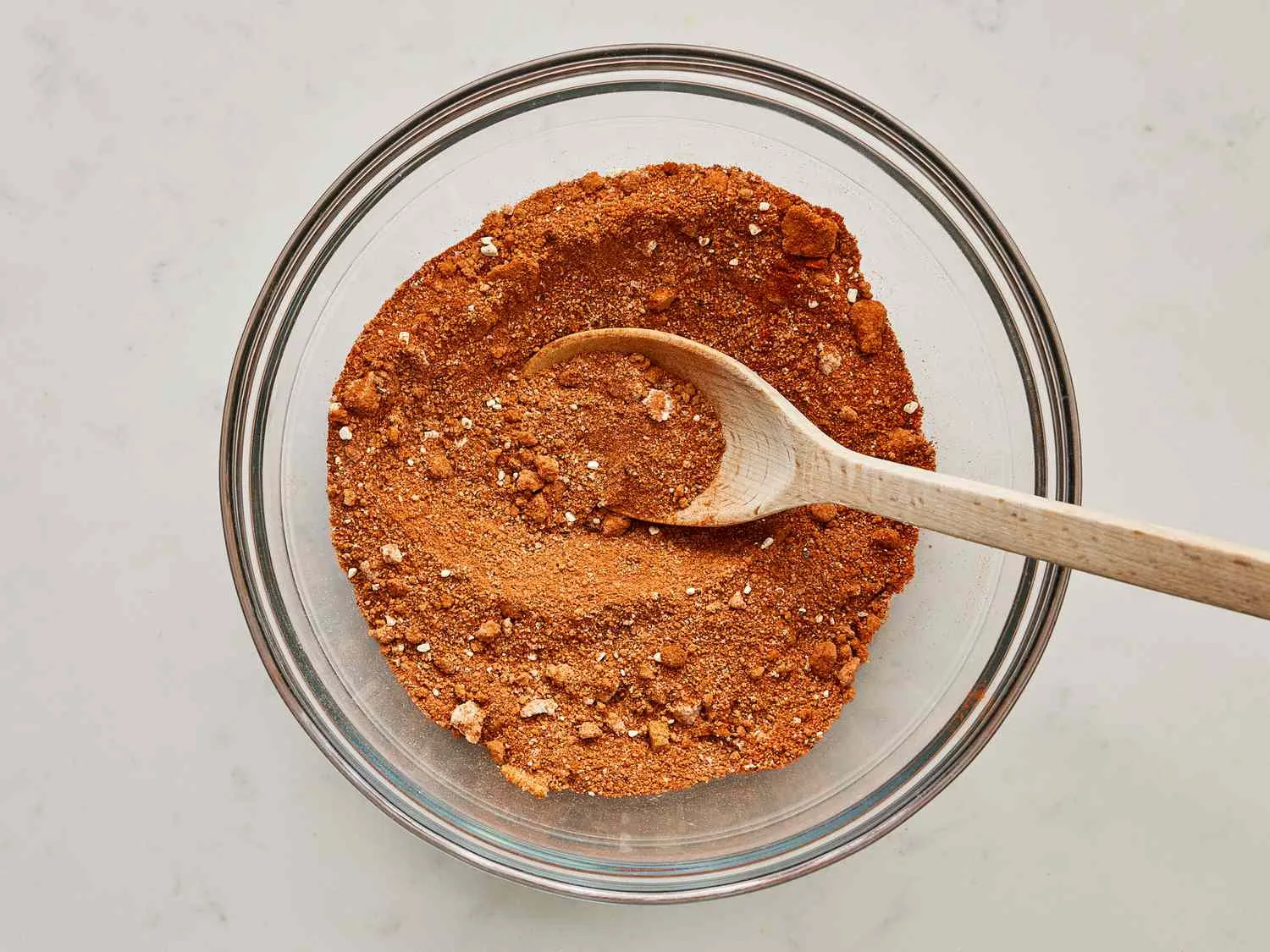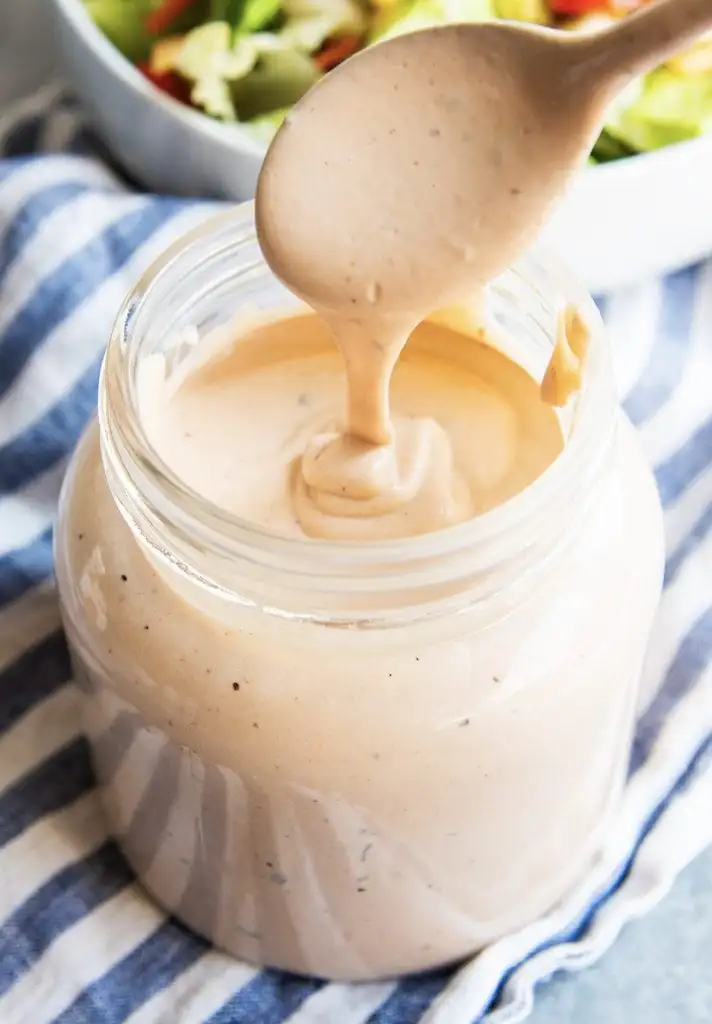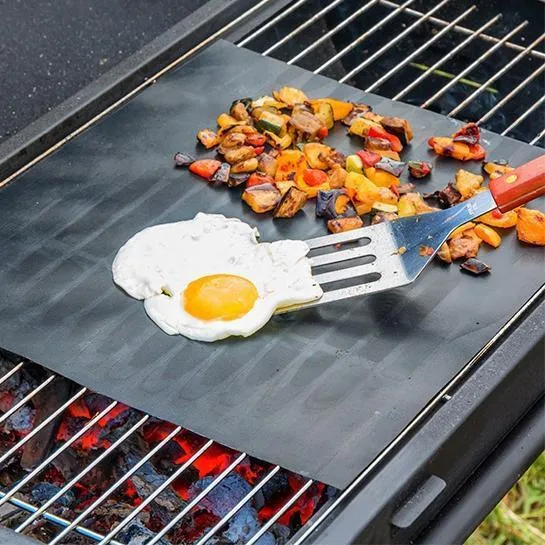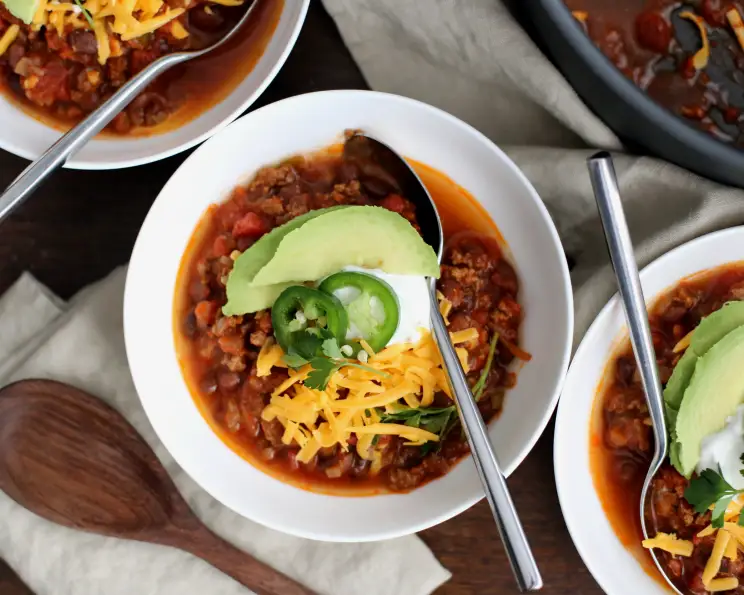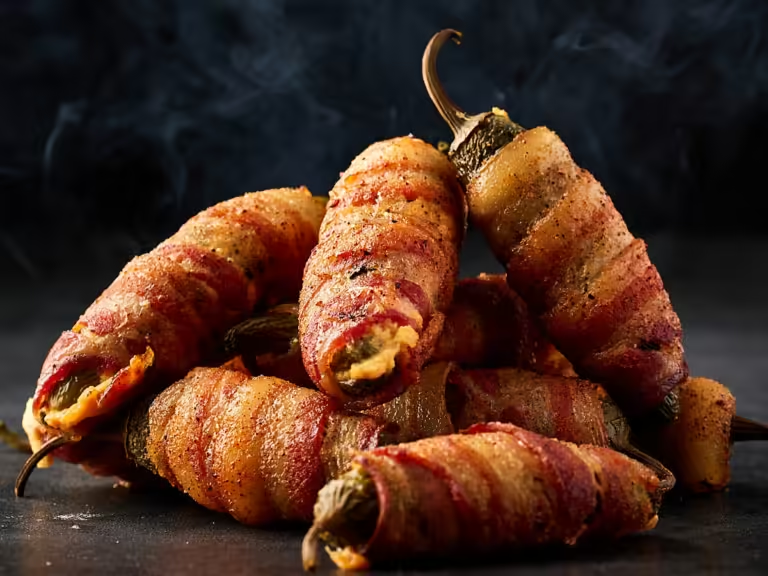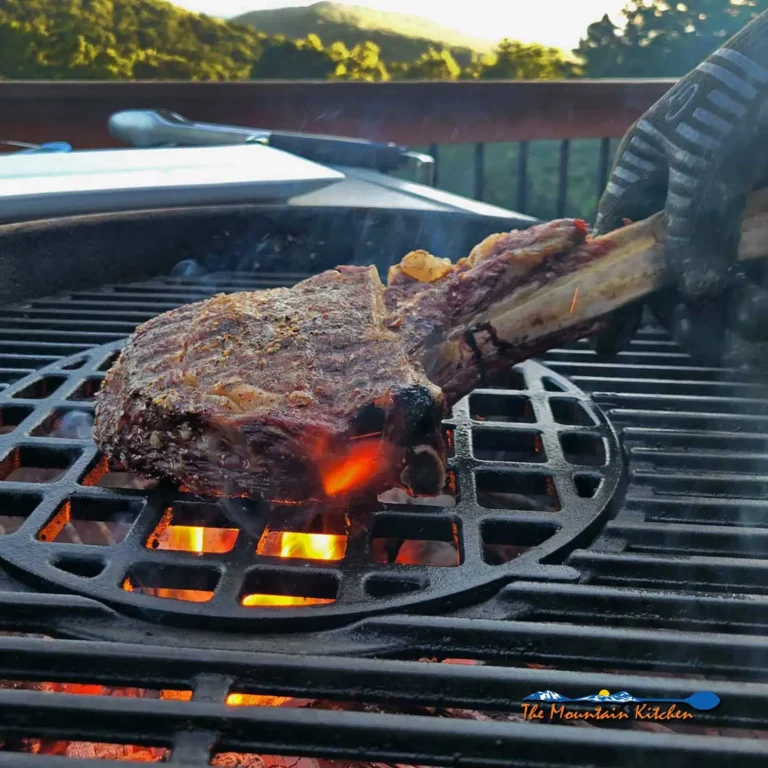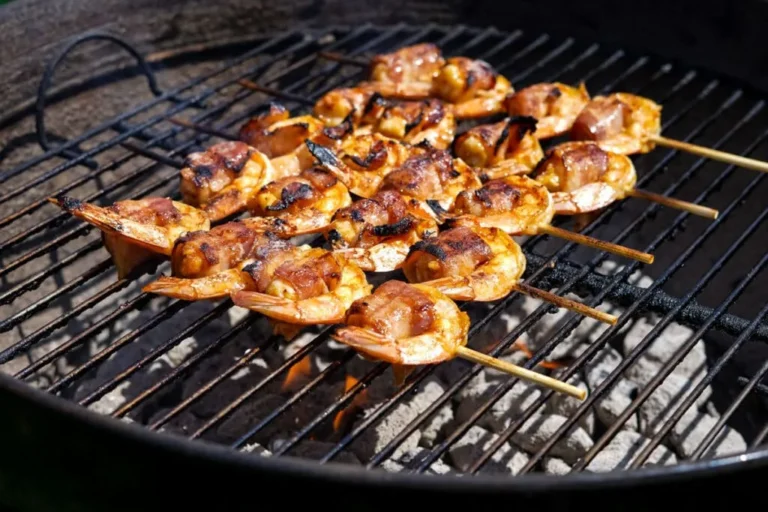How To Make BBQ Rub: Homemade Recipe
Making your own BBQ rub at home is a real game-changer for anyone who loves to grill. It not only lets you tweak the flavors to suit your taste but also adds a unique, personal touch to your grilling sessions. While store-bought rubs are handy, they simply can’t match the freshness and flexibility of a homemade mix.
Moreover, whipping up your own BBQ rub means you get to control the ingredients, steering clear of any unwanted additives and customizing the spice blend to match different meats or personal flavor preferences. Whether you lean towards smoky, sweet, or spicy notes, a homemade BBQ rub can take your grilling skills to a whole new level. So, let’s jump into the process on how to make BBQ rub right in your own kitchen!
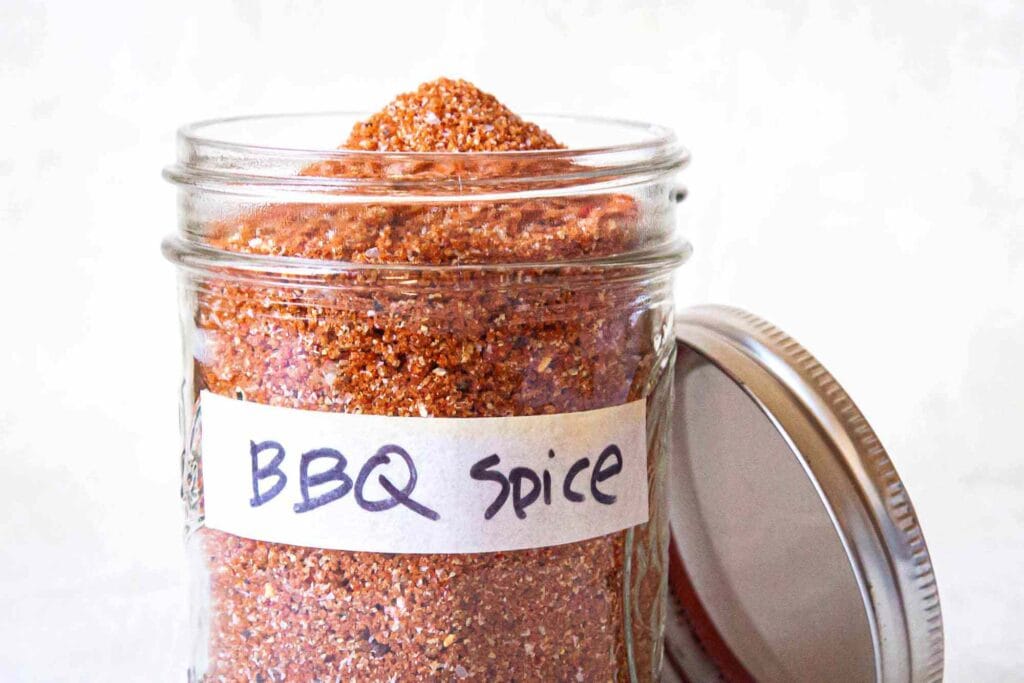
What is a BBQ Rub?
A BBQ rub is a mix of spices, herbs, and seasonings that you apply to meat before grilling, smoking, or roasting. These rubs are essential for flavoring and tenderizing the meat.
The main goal of a BBQ rub is to boost the natural flavors of the meat, adding layers of taste from sweet and smoky to spicy and savory. As the rub cooks, it forms a tasty crust that helps lock in juices, keeping the meat tender and moist.
Ingredients like sugar and salt in BBQ rubs can also act as tenderizers, breaking down the meat’s proteins to ensure a juicy and flavorful result. Whether you’re grilling ribs, chicken, pork, or beef, a well-made BBQ rub can elevate your dishes, making them more delicious and memorable.

Essential Ingredients for BBQ Rubs
Creating the ideal BBQ rub involves a mix of several key ingredients, each contributing to the overall flavor. Here’s a rundown of the basics:
- Salt: This is the foundation of any rub, boosting the meat’s natural flavors and aiding in tenderness. Kosher salt or sea salt is often favored for their texture and purity.
- Sugar: Adds a hint of sweetness and helps caramelize the meat’s surface, forming a delicious crust. Brown sugar is a common choice due to its rich molasses flavor, but white or turbinado sugar can also work.
- Paprika: Gives a mild sweetness and a vibrant red hue. Smoked paprika is especially good for imparting a deeper, smoky flavor ideal for BBQ.
- Black Pepper: Provides a sharp, pungent heat. Freshly ground black pepper is preferred for its strong flavor.
- Garlic Powder: Contributes a savory, umami richness. It’s a key ingredient that pairs well with both sweet and spicy elements.
- Onion Powder: Like garlic powder, it boosts the savory aspects and adds a touch of subtle sweetness.
- Chili Powder: Introduces mild to moderate heat along with a complex spice mix including cumin, oregano, and cayenne.
- Cumin: Adds a warm, earthy depth that complements both sweet and spicy flavors.
- Cayenne Pepper: For those who enjoy a spicy kick, cayenne pepper delivers heat. Use it cautiously to adjust spiciness to your taste.
- Mustard Powder: Offers a tangy, slightly bitter note that balances the sweetness of the sugar and the heat from the peppers.
Salt
Salt is arguably the most crucial component in any BBQ rub. It plays several vital roles in meat prep. Primarily, salt enhances the meat’s natural flavors through osmosis. It draws moisture out of the meat, creating a brine that is then reabsorbed. This process allows the salt to penetrate deeply, breaking down muscle proteins and tenderizing the meat, resulting in a juicier texture.
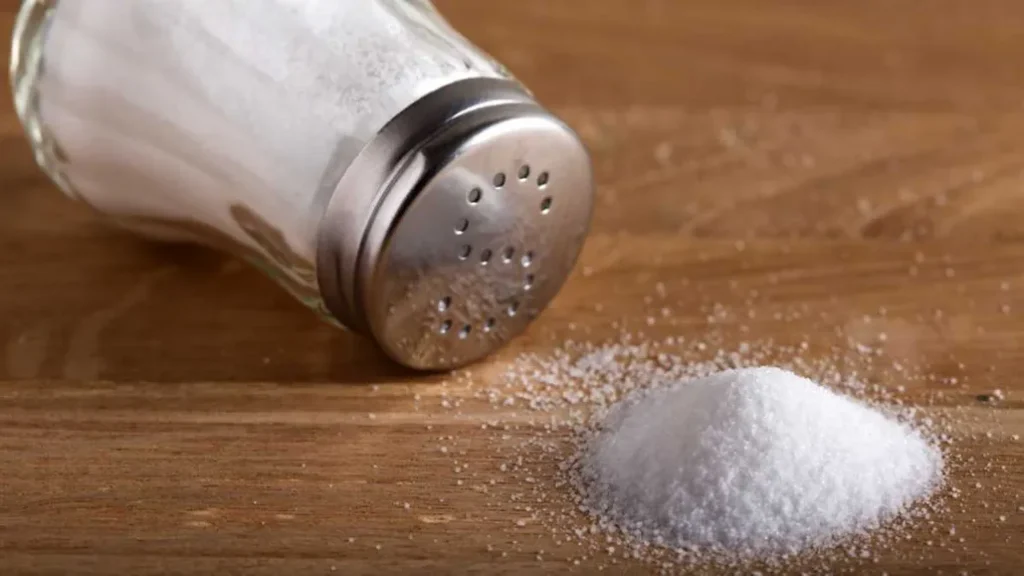
Moreover, salt helps form a flavorful crust on the meat’s surface when exposed to heat, contributing to a savory, mouth-watering bite. The right amount of salt ensures that all the other flavors—sweet, spicy, and smoky—blend together seamlessly.
Sugar
Sugar is a crucial ingredient in BBQ rubs, adding sweetness and complexity to the flavor profile. When the sugar is subjected to the high temperatures of grilling or smoking, it caramelizes, creating a rich, brown crust that enhances both the appearance and texture of the meat.

This caramelization, driven by the Maillard reaction, not only gives the meat an appealing color but also adds depth and complexity to the flavor. It contrasts beautifully with the savory and spicy elements of the rub. Brown sugar is particularly popular due to its molasses content, which imparts a deeper, richer sweetness and helps retain moisture, keeping the meat tender and juicy.
Black Pepper
Black pepper is a staple in BBQ rubs, offering a sharp, pungent heat that enhances the overall flavor profile. Its heat is subtler and more nuanced compared to other peppers, providing a warm, biting spiciness that complements both sweet and savory ingredients. Freshly ground black pepper is especially potent, releasing essential oils that intensify its flavor and aroma.
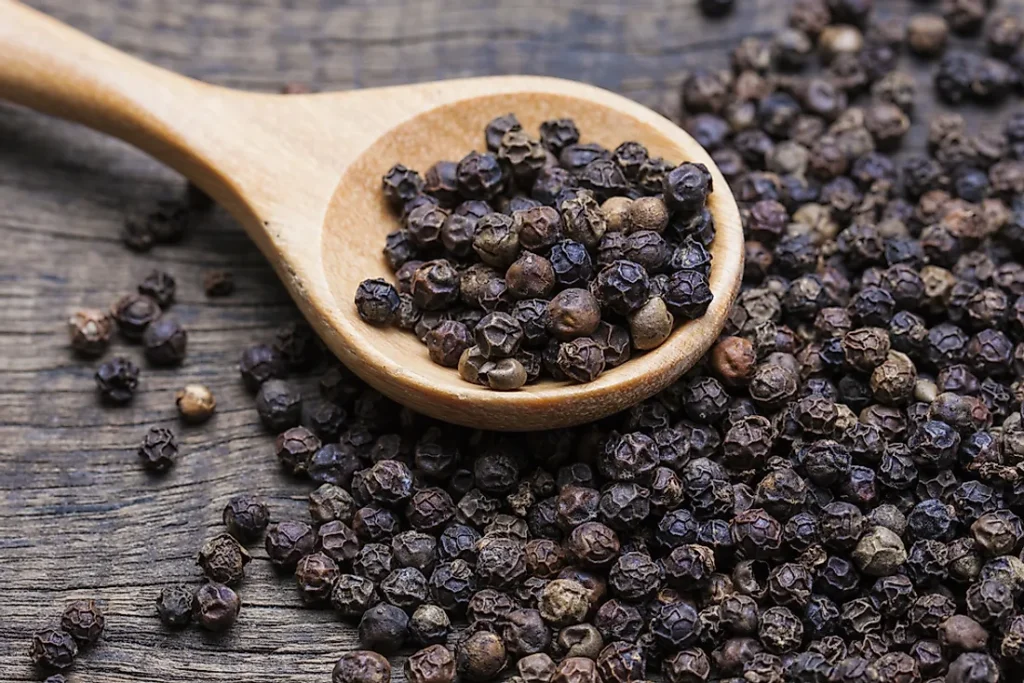
Additionally, black pepper works well with other spices, helping to amplify their flavors and create a balanced taste. Its versatility makes it an essential ingredient in any rub, contributing to a well-rounded and harmonious blend that elevates the meat’s natural flavors.
How to Make BBQ Rub Recipe
Making your own BBQ rub is a simple process that lets you customize the flavors to your liking. Here’s a step-by-step guide to creating a classic BBQ rub:
Ingredients You’ll Need
For a basic BBQ rub, gather the following:
- 1/4 cup kosher salt
- 1/4 cup brown sugar
- 1/4 cup paprika (opt for smoked paprika for a richer flavor)
- 2 tablespoons freshly ground black pepper
- 1 tablespoon garlic powder
- 1 tablespoon onion powder
- 1 tablespoon chili powder
- 1 teaspoon ground cumin
- 1 teaspoon cayenne pepper (adjust according to your heat preference)
- 1 teaspoon mustard powder
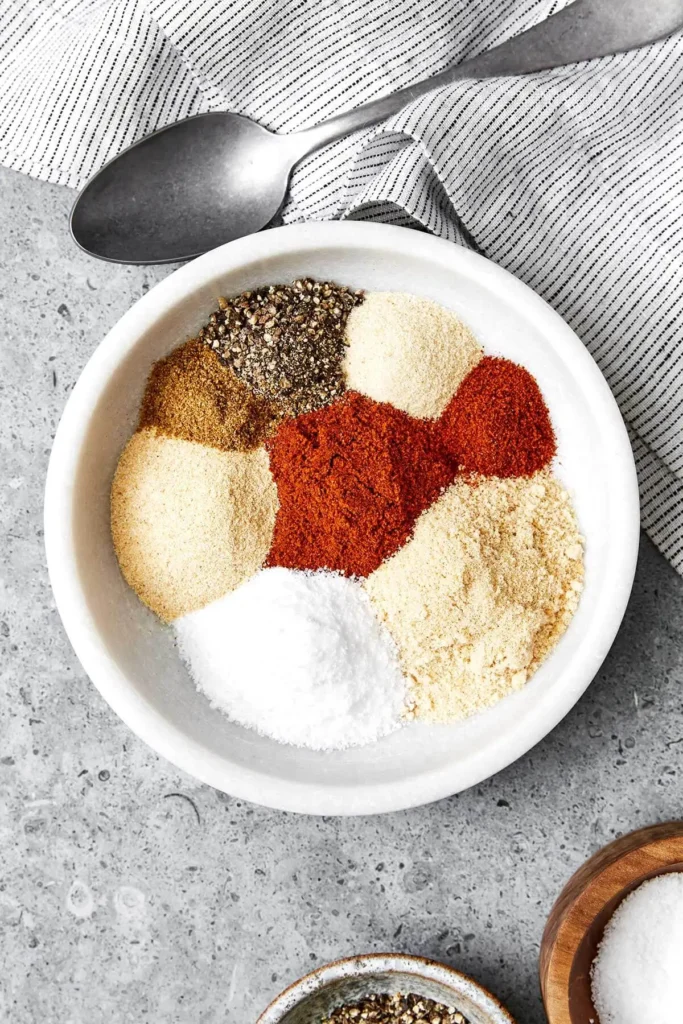
Mixing Instructions
- Prepare Your Ingredients: Measure out all your ingredients and have them ready. This will streamline the mixing process.
- Combine the Dry Ingredients: In a large bowl, mix together the kosher salt, brown sugar, paprika, black pepper, garlic powder, onion powder, chili powder, cumin, cayenne pepper, and mustard powder.
- Blend Well: Use a whisk or your hands to thoroughly combine all the ingredients. Ensure there are no lumps and everything is evenly mixed.
- Store the Rub: Place the BBQ rub in an airtight container, like a mason jar. Keep it in a cool, dry place. The rub should stay fresh for several months.
- Apply the Rub: To use the rub, generously sprinkle it over your chosen meat. Press the rub into the meat so it sticks and covers all surfaces. For the best flavor, let the meat sit with the rub for at least 30 minutes before cooking, or refrigerate it overnight for a more intense flavor.
- Cook Your Meat: Grill or smoke your meat using your preferred method. The BBQ rub will form a delicious crust as it cooks, enhancing the overall flavor and texture of the meat.
How to Apply BBQ Rubs
Properly applying BBQ rubs is essential for maximizing flavor and achieving the best results. Here’s a guide on how to effectively use rubs on various types of meat.
Preparation
- Clean and Dry: Make sure the meat is clean, then pat it dry with paper towels. This removes excess moisture, allowing the rub to stick better.
- Trim Excess Fat: Remove any extra fat from the meat. Excess fat can prevent the rub from adhering properly and may cause flare-ups on the grill.


Application
- Generous Coating: Apply a generous amount of BBQ rub to the meat. Don’t be shy—an ample coating ensures robust flavor.
- Even Spread: Distribute the rub evenly across all surfaces of the meat. Use your hands to massage the rub in, making sure it gets into all the crevices.
- Rest Time: After applying the rub, let the meat rest for at least 30 minutes before cooking. This allows the flavors to penetrate. For a more intense flavor, you can refrigerate it for several hours or overnight.

Type-Specific Tips
Beef:
- Brisket: Rub it the night before cooking and let it rest in the fridge. This extended marinating time helps tenderize the meat and infuse it with flavor.
- Steaks: Apply the rub about 30 minutes before grilling to let the flavors meld without overpowering the natural taste of the beef.
Pork:
- Ribs: Coat the ribs generously with the rub and let them rest for a few hours. For best results, wrap them in plastic wrap and refrigerate overnight.
- Pork Butt or Shoulder: Similar to brisket, this cut benefits from a longer resting time with the rub. Apply it and let it sit overnight.
Chicken:
- Whole Chicken: Ensure you get the rub under the skin as well as on the surface. Let it rest for at least an hour before cooking.
- Chicken Pieces: Rub the pieces and let them sit for 30 minutes to an hour. Chicken absorbs flavors quickly, so shorter marinating times are effective.
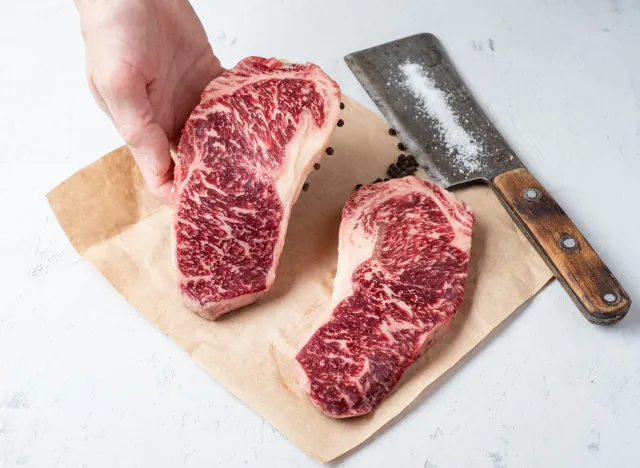
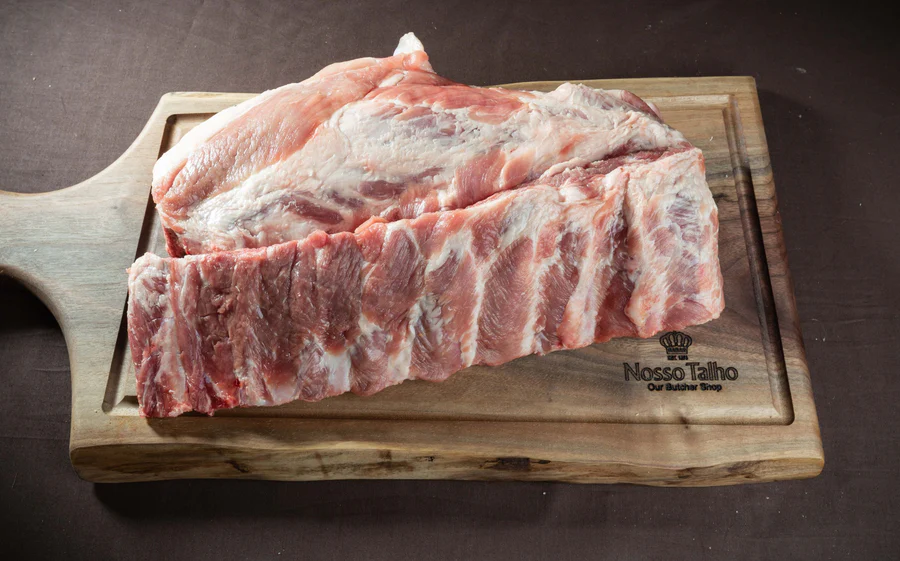
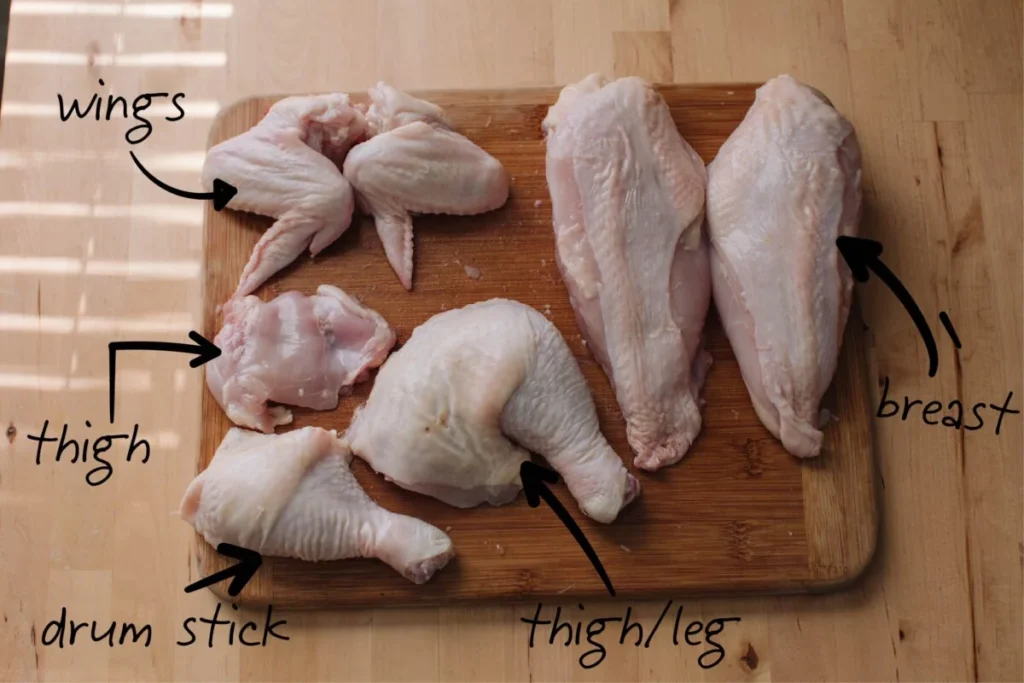
Cooking Tips
- Low and Slow: For larger cuts like brisket and pork butt, cook low and slow to develop a rich flavor. This method creates a flavorful crust while keeping the meat tender and juicy.
- High Heat for Quick Cooking: For steaks and chicken breasts, use higher heat for a quick sear. This creates a flavorful crust without drying out the meat.
Customizing Your BBQ Rub
One of the perks of making your own BBQ rub is the ability to tweak it to your taste. Here are some tips for customizing the basic recipe:
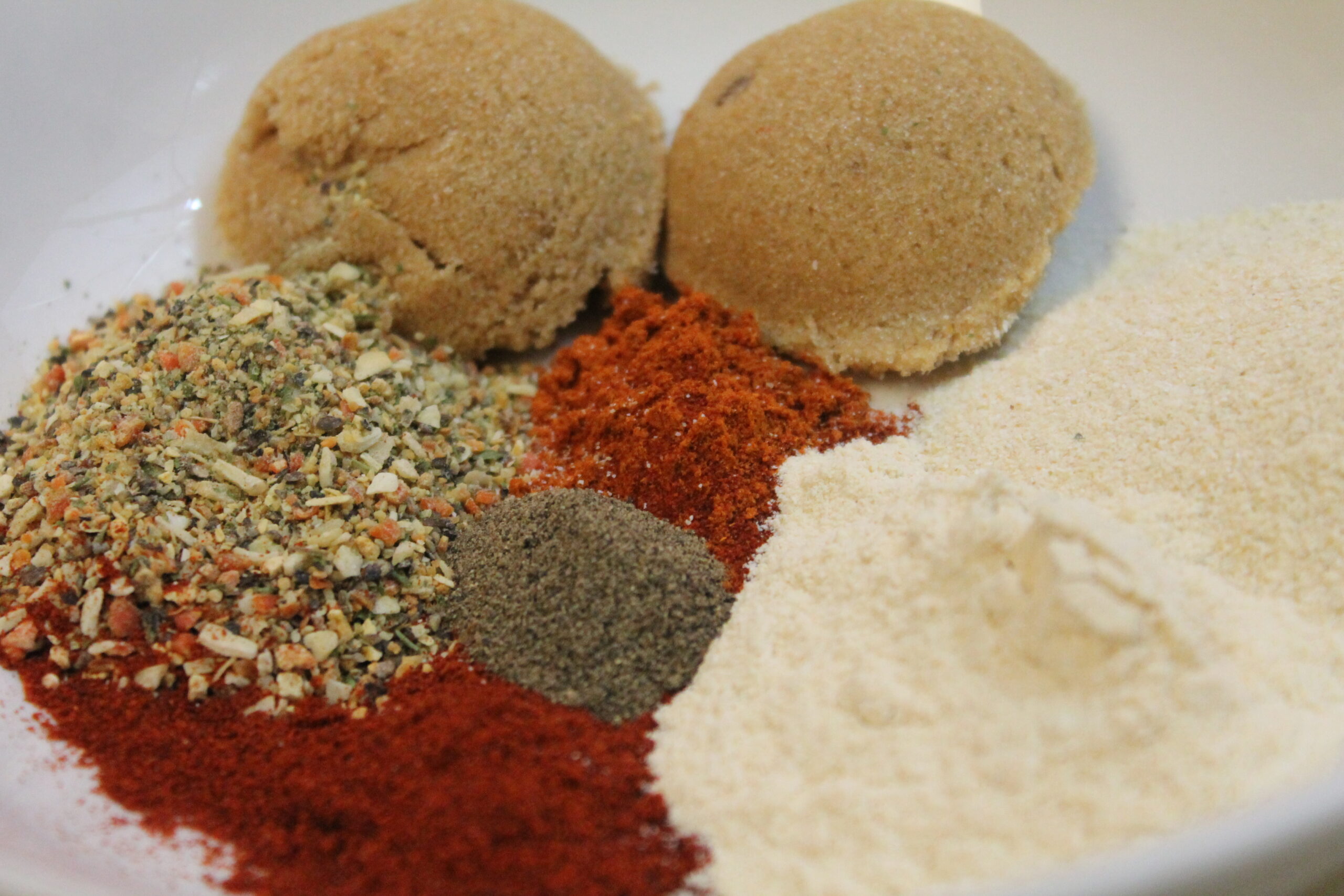
Adding Heat
If you like spicy flavors, consider these additions:
- Cayenne Pepper: Start with a small amount and adjust to taste.
- Red Pepper Flakes: These provide a different kind of heat and add visual appeal.
- Chipotle Powder: Adds smoky heat that complements many BBQ flavors.
- Hot Paprika: Spicier than regular paprika, adding both heat and color.
- Black Pepper: Increasing freshly ground black pepper can also add more heat.
Adding Sweetness
For those who prefer a sweeter BBQ rub, especially for pork and chicken:
- Brown Sugar: Increase the amount for a deeper, molasses-like sweetness.
- Honey Powder: Adds sweetness without moistening the rub, ideal for dry rubs.
- Maple Sugar: Provides a unique, rich sweetness that pairs well with pork.
- Turbinado Sugar: Adds subtle sweetness and helps create a nice crust.
- Cinnamon: Adds a sweet, warm flavor that works especially well with pork.
Additional Customization Tips for BBQ Rubs
Elevate your BBQ game by customizing your rub to suit your tastes and the specific dish you’re preparing. Here are some ideas to give your rub a unique twist:
Smokiness:
- Smoked Paprika: Adds a rich, smoky flavor without overwhelming the rub.
- Ground Chipotle: Provides a smoky heat that complements many BBQ flavors.
Herbs:
- Dried Thyme, Oregano, Rosemary, Sage: Incorporate these dried herbs for an aromatic complexity that enhances the overall flavor profile.
Citrus Zest:
- Lemon or Orange Zest: Adds a bright, fresh note that can cut through the richness of BBQ meat.
Coffee:
- Finely Ground Coffee: A small amount can enhance the rub’s depth, adding a robust flavor that pairs well with the meat.
Mustard Powder:
- Increased Amount: Adds a tangy, slightly bitter undertone that balances sweetness and heat.
Using these customized rubs while grilling chicken on a charcoal grill can transform your cooking. Imagine the smoky essence from the charcoal blending with a medley of spices to create a crispy, flavorful crust.
Sample Customized BBQ Rubs
Spicy BBQ Rub:
- 1/4 cup kosher salt
- 1/4 cup brown sugar
- 1/4 cup smoked paprika
- 2 tablespoons black pepper
- 1 tablespoon garlic powder
- 1 tablespoon onion powder
- 1 tablespoon chili powder
- 2 teaspoons cayenne pepper
- 1 teaspoon cumin
- 1 teaspoon mustard powder
Sweet BBQ Rub:
- 1/4 cup kosher salt
- 1/2 cup brown sugar
- 1/4 cup paprika
- 2 tablespoons black pepper
- 1 tablespoon garlic powder
- 1 tablespoon onion powder
- 1 tablespoon cinnamon
- 1 teaspoon chili powder
- 1 teaspoon mustard powder
Cost-Effectiveness of Homemade Rubs
Creating your own BBQ rub is not only customizable but also cost-effective compared to store-bought options. Here’s a breakdown of the financial benefits:
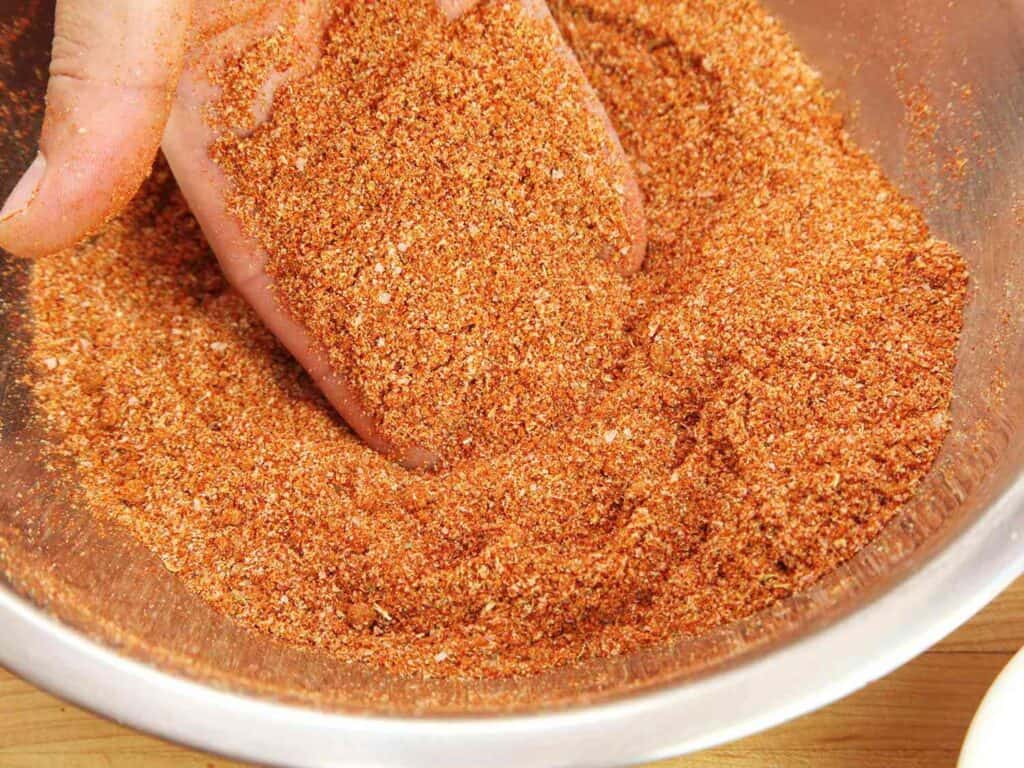
Ingredient Cost Breakdown:
- Kosher Salt (1/4 cup): ~$0.10
- Brown Sugar (1/4 cup): ~$0.20
- Paprika (1/4 cup): ~$0.50
- Black Pepper (2 tablespoons): ~$0.40
- Garlic Powder (1 tablespoon): ~$0.30
- Onion Powder (1 tablespoon): ~$0.30
- Chili Powder (1 tablespoon): ~$0.20
- Cumin (1 teaspoon): ~$0.10
- Cayenne Pepper (1 teaspoon): ~$0.10
- Mustard Powder (1 teaspoon): ~$0.15
Total Cost for Homemade Rub: ~$2.35 for about 1 cup
Pre-made BBQ Rub:
- Average Cost (8 oz): ~$8.00
Cost Savings:
- Homemade Rub: ~$2.35 per cup
- Pre-made Rub: ~$8.00 per cup
Additional Benefits:
- Bulk Purchasing: Buying spices in bulk reduces costs even further. Spices like salt, sugar, and paprika are cheaper per ounce in large quantities.
- Quality Control: Homemade rubs allow you to control the quality, avoiding fillers and artificial additives found in commercial products.
- Customization: Tailor the rub to your specific taste preferences and dietary needs, which isn’t possible with pre-made options.
- Freshness: Homemade spices are fresher, providing more vibrant flavors compared to store-bought rubs.
Practical Example:
If you BBQ once a week and use about 1/4 cup of rub each time:
- Yearly Use: 1/4 cup x 52 weeks = 13 cups of rub
- Cost of Homemade Rub for a Year: 13 cups x $2.35 = ~$30.55
- Cost of Pre-made Rub for a Year: 13 cups x $8.00 = ~$104.00
Storing BBQ Rubs
Proper storage is key to keeping your BBQ rubs fresh and flavorful. Here’s how to store them effectively:
Airtight Containers:
- Use Airtight Containers: Store your rub in airtight containers to prevent moisture and preserve flavor. Glass jars with tight-fitting lids are ideal.
- Label Containers: Mark each container with the date and contents to track freshness and avoid confusion.
Cool, Dark Place:
- Avoid Heat and Light: Store in a cool, dark place, away from direct sunlight and heat. This prevents flavor degradation.
- Consistent Temperature: Maintain a cool, stable temperature to avoid condensation and spoilage.
Dry Environment:
- Keep It Dry: Store in a dry area to prevent clumping and flavor loss. Avoid places with steam or humidity.
Avoid Cross-Contamination:
- Use Clean Utensils: Always use a clean, dry spoon to scoop out the rub. Avoid dipping wet utensils into the container.
Use Desiccants:
- Add Silica Gel Packs: Place a food-safe silica gel pack in the container to absorb residual moisture, especially in humid conditions.
Shelf Life of Homemade BBQ Rubs:
- Use Within 6 Months: For optimal flavor, use homemade rubs within six months. After this, spices may lose potency.
- Check Regularly: Look for clumping, discoloration, or off smells, which indicate the rub may have gone bad.
Additional Recipes and Variations
1. Memphis-Style BBQ Rub:
- 1/4 cup paprika
- 2 tablespoons brown sugar
- 1 tablespoon kosher salt
- 1 tablespoon black pepper
- 1 tablespoon garlic powder
- 1 tablespoon onion powder
- 1 teaspoon cayenne pepper
- 1 teaspoon mustard powder
- 1 teaspoon dried thyme
2. Texas-Style BBQ Rub:
- 1/4 cup black pepper
- 1/4 cup paprika
- 1/4 cup kosher salt
- 2 tablespoons chili powder
- 1 tablespoon garlic powder
- 1 tablespoon onion powder
- 1 teaspoon cumin
- 1 teaspoon cayenne pepper
3. Carolina-Style BBQ Rub:
- 1/4 cup brown sugar
- 2 tablespoons mustard powder
- 2 tablespoons kosher salt
- 1 tablespoon black pepper
- 1 tablespoon paprika
- 1 tablespoon garlic powder
- 1 tablespoon onion powder
- 1 teaspoon cayenne pepper
4. Low-Sodium BBQ Rub:
- 1/4 cup paprika
- 2 tablespoons brown sugar
- 1 tablespoon black pepper
- 1 tablespoon garlic powder
- 1 tablespoon onion powder
- 1 tablespoon dried oregano
- 1 teaspoon cumin
- 1 teaspoon cayenne pepper
FAQs
Disclosure: Our blog contains affiliate links to products. We may receive a commission for purchases made through these links. However, this does not impact our reviews and comparisons. We try our best to keep things fair and balanced, in order to help you make the best choice for you.

